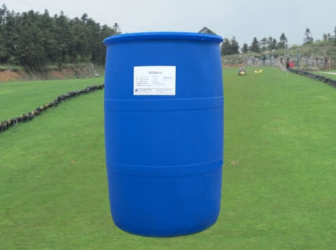Some biosurfactants can promote the removal of heavy metal ions from soil particles. The remediation effect of these biosurfactants on heavy metals in soil depends on their anionic (negatively charged) nature. They can adsorb to the soil and combine with heavy metal ions, so that they can be separated from soil particles into soil solution and combined into surfactant micelles.

There are few studies on the effects of biosurfactants on the remediation of heavy metals in soil, but good progress has been made. Mulligan et al. Systematically studied the effect of biosurfactants on the removal of heavy metals from soil and sediment. Firstly, they used lipoproteins to remove copper and zinc from hydrocarbon contaminated soil. For the first time, biosurfactants were applied to the remediation of soil polluted by both organic substances and heavy metals. The experimental results showed that 70% of copper ions were removed and 50% of hydrocarbon pollutants were removed. Obviously, this result is very ideal. Later, they further proved the feasibility of the application of anionic biosurfactants lipoprotein and rhamnolipid in the remediation of heavy metals through sequence batch experiments, and revealed their mechanism of action. Searching for appropriate biosurfactants, appropriate conditions and investigating their effects on compound polluted (organic and heavy metal) soil will become the focus of biosurfactants' application in heavy metal remediation.
The composting process is to use microorganisms to make the organic matter in solid waste undergo biochemical degradation under certain temperature, humidity and pH conditions to form a substance similar to humus soil. With the increase of urban population, the efficiency of traditional composting methods can not meet the requirements. Considering the advantages of biosurfactants in soil remediation, it should be feasible to apply biosurfactants to the composting process to improve the composting efficiency. Its functions may include the following:
(1) The desorbing effect of biosurfactants is conducive to the removal of organic matter from the compost particles into the interstitial liquid phase of composting, and then degraded by microorganisms, which indirectly shortens the composting time.
(2) The existence of biosurfactants may reduce the surface tension of liquid phase between compost particles, which is conducive to the transmission of organic matter and bacteria, and make the organic matter at all levels of compost fully contact with bacteria, which will inevitably improve the efficiency of composting.
(3) The addition of biosurfactants may promote the transmission and dispersion of water in the compost particles, so that the water can penetrate into the deep layer of the compost in a short time. Moreover, biosurfactants have good moisturizing performance, which can slow down the evaporation of water in the compost and help to maintain the activity of microorganisms for a long time.